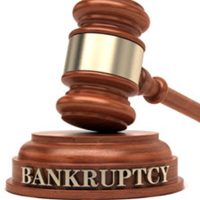Why is Bankruptcy a Good Option?

Filing bankruptcy is a good option if your non-housing expenses, such as vehicle payments, credit card bills, and medical bills, exceed 36 percent of your net income. If that’s the case, you have more debt than you can comfortably repay. People in these situations have two basic options. They can sit back and watch their financial situations get worse every month, or they can take control of the matter and file bankruptcy.
A Chicago bankruptcy lawyer can discuss several options with you. Chapter 7 eliminates unsecured debts in under a year. Chapter 13 gives debtors up to five years to catch up on secured debt payments. All bankruptcy filers benefit from the Automatic Stay and asset exemptions. The Automatic Stay halts most creditor adverse actions, and most property is exempt from seizure under Illinois law.
Credit Card Bills
The average credit card holder has over $4,000 in credit card debt, and the average credit card interest rate is over 20 percent. After a few months, even these minimum numbers create a balance so large that it’s impossible to pay off. Monthly minimum payments barely cover interest.
Chapter 7’s debt discharge provisions eliminate the need for credit card payments. Imagine what your family could do with an extra $3,000 or $4,000 a year.
Furthermore, a Chicago bankruptcy lawyer helps families retain a card or two on more favorable terms. Bankruptcy wipes out all existing debt agreements, including credit card repayment agreements. So, an attorney negotiates with a credit card company and obtains concessions like a lower interest rate or partial UPB (unpaid principal balance) forgiveness.
Bankruptcy’s Automatic Stay is very important in these cases as well. Many credit card companies file lawsuits after just two or three missed payments. A bankruptcy filing stops such lawsuits in their tracks. Then, when the judge discharges the debt, the debtor no longer has a legal obligation to repay it.
Medical Bills
Excessive medical debt is the number one reason people file bankruptcy. Medical bill inflation regularly outpaces overall inflation. So, these bills get big fast. Furthermore, most doctors refer delinquent accounts to debt buyers after one or two months.
The same dynamics discussed above apply to medical bills. These bills are dischargeable unsecured debts. Furthermore, a lawyer can negotiate with a doctor to adjust repayment terms, so a debtor stays in a doctor’s good graces. Usually, doctors refuse to see patients who owe money, whether they file bankruptcy or not.
On a related note, high medical bills often create a snowball effect. Many people prioritize medical bills above other expenses. So, while they stay current on these bills, they fall behind in other areas.
Past-Due Secured Debt Payments
The vehicle repossession rate has increased significantly in recent years. Legally, most auto lenders can repossess most vehicles after just one missed payment. Furthermore, most cars and trucks have remote ignition disablers. The lender disables the ignition if the borrower falls more than about two weeks behind.
Frequently, people fall behind on such payments because of temporary income disruptions. In these cases, Chapter 13 is usually the best option. People with retired incomes can easily make two or three catch-up payments, if these payments are spread out over four or five years.
Chapter 7 may be a better option in other cases. If the debtor cannot afford the car, for whatever reasons, a bankruptcy filing looks better than a repossession on a credit record. A vehicle repossession means the debtor quit. If people file bankruptcy, they at least did something.
Contact a Diligent Cook County Lawyer
No matter what kind of financial problem you are having, bankruptcy could be a way out. For a free consultation with an experienced bankruptcy attorney in Chicago, contact the Bentz Holguin Law Firm, LLC. Convenient payment plans are available.
Source:
investopedia.com/ask/answers/12/reasonable-amount-of-debt.asp#:~:text=A%20good%20rule%2Dof%2Dthumb,%2C%20and%20condo%2FPOA%20fees.


